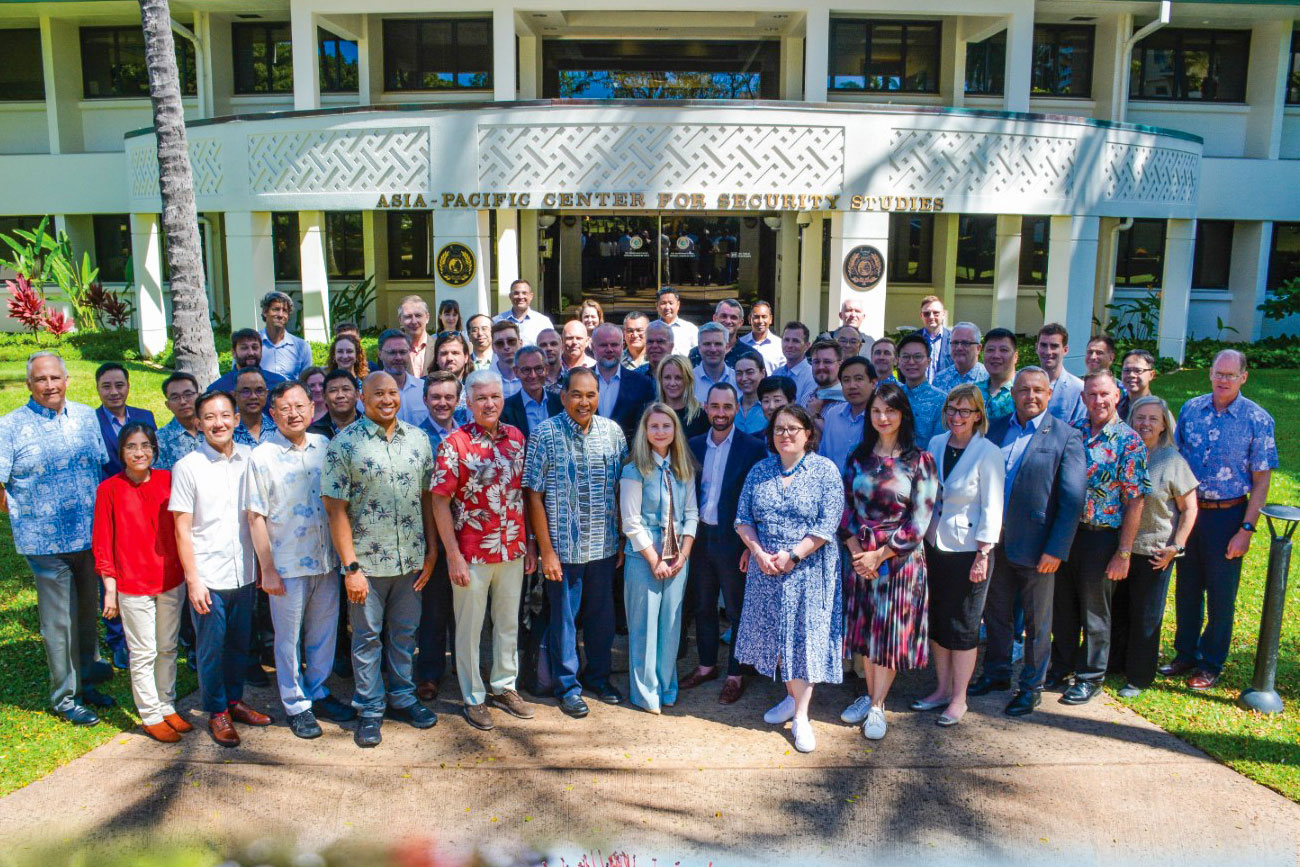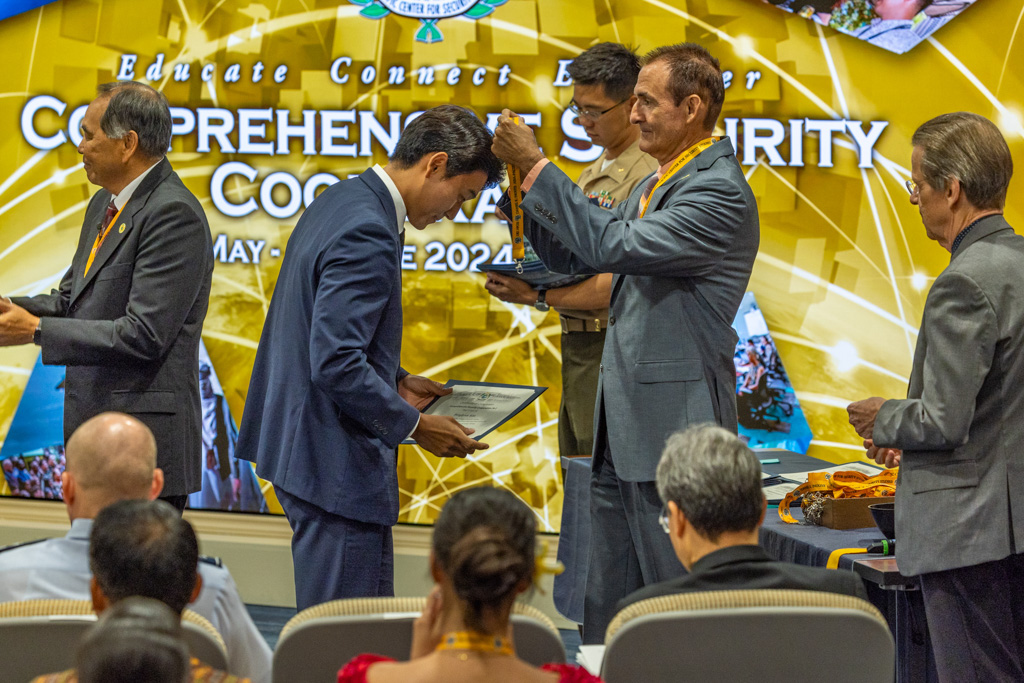“Strategic Competition & Security Cooperation in the Blue Pacific” is the latest publication from the Daniel K. Inouye Asia-Pacific Center for Security Studies.
The book explores the dynamic geopolitical pressures in the region and addresses how these pressures impact security architecture, relationships, and policy. Multidimensional security challenges, such as COVID-19, climate change, water and food, piracy, and maritime challenge, are deliberated upon and given policy recommendations. Its 17 contributors represent high-ranking individuals and experts who have geared the content for policymakers, security practitioners, and researchers.
This book represents the third DKI APCSS publication on Oceania security. Previous publications on the topic include “Regionalism, Security & Cooperation in Oceania” and “Security in Oceania in the 21st Century.”
According to DKI APCSS Professor Deon Canyon, the book’s editor, competing great powers like China and the U.S. have recently fallen short in their efforts to gain regional support in the Pacific region. Canyon credits the disconnect to deficits in a real long-term commitment and cultural awareness. In response, Pacific leaders have taken the initiative by publishing their vision for the future with the “2050 Strategy for the Blue Pacific Continent.”
Says Canyon, “[In the 2050 Strategy] the Pacific leaders have clearly articulated a unified vision for the Blue Pacific ‘continent’ wherein peace, harmony, security, social inclusion, and prosperity abound for all.”
In addressing Oceania’s security challenges, the book aims to spur security practitioners and partners to support these aspirations. With a distinct vision for the region at the forefront, Oceania’s external partners have a significant opportunity to embrace a commitment to the Pacific Region.
The views expressed in this book are the authors’ and do not necessarily reflect those of DKI APCSS, the U.S. Department of Defense, or the U.S. Government.
DKI APCSS is a Department of Defense institute that addresses regional and global factors impacting the Asia-Pacific security environment. Military and civilian representatives from the United States and Asia-Pacific nations participate in a comprehensive program of executive education, professional exchanges, and outreach events, both in Hawaii and throughout the Asia-Pacific region.
DKI APCSS’ mission is to build capacities and communities of interest by educating, connecting, and empowering security practitioners to advance Asia-Pacific security. It is one of the Department of Defense’s five regional security studies centers. Since opening in 1995, more than 14,000 alumni representing over 122 countries and territories have attended DKI APCSS courses and workshops.










Leave A Comment